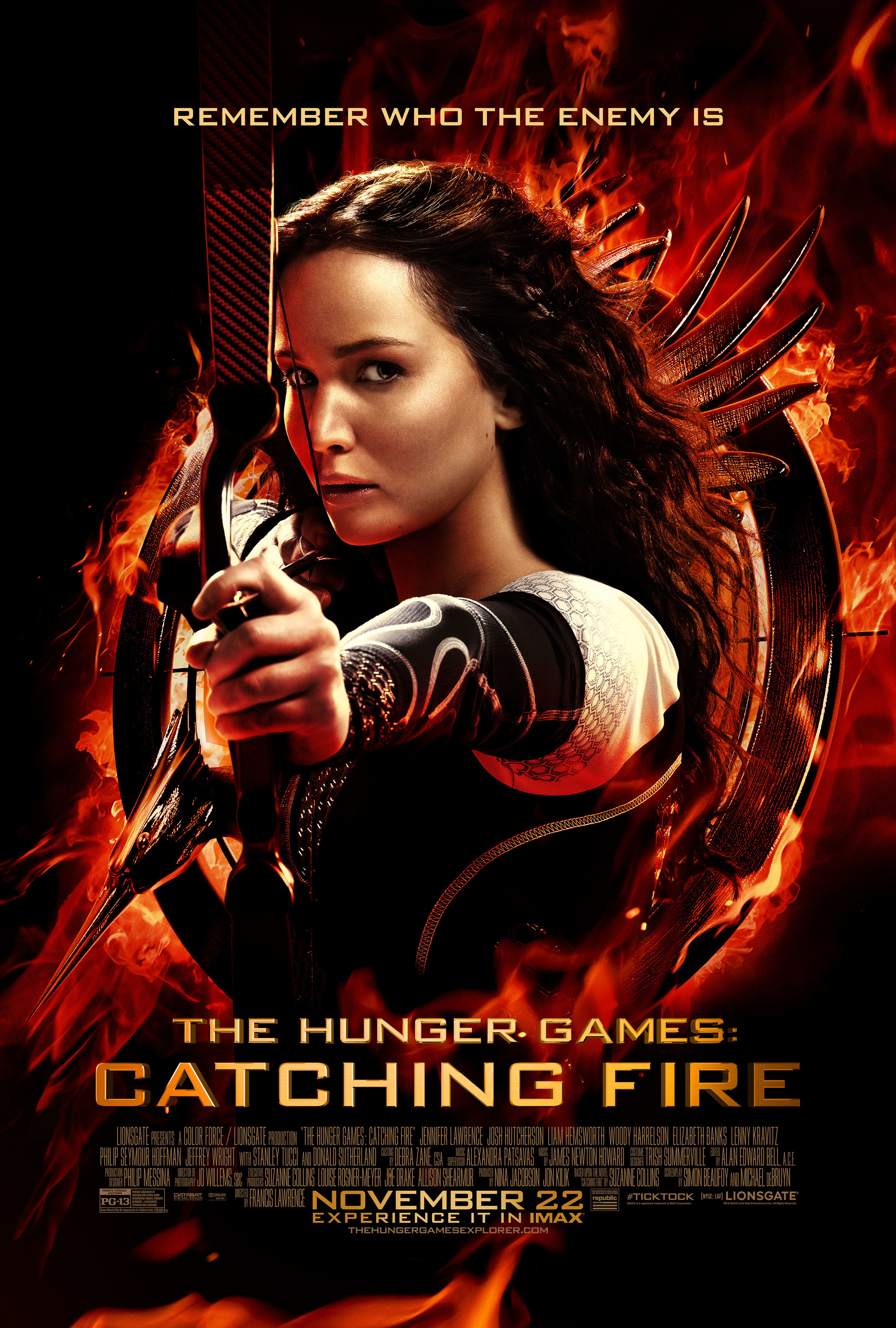In the fantastic sequel to The Hunger Games (2012), director Francis Lawrence (Constantine, I Am Legend) doesn't reinvent the wheel of action and adventure, but he doesn't have to. He abandons the seizure-inducing shaky cam that will forever seem sophomoric when used by anyone that isn't Bourne director Paul Greengrass, and luckily shots last longer than a half second before abruptly cutting. A smart friend said recently that the action in the original Hunger Games was a product of editing, and he's right. That's a huge problem, and Francis Lawrence wisely keeps what worked about the first film's visual style - the striking juxtaposition between the gray of the districts, the natural vibrancy of the arena, and the colorful vivaciousness of the capitol, all of which are color graded differently in post production for maximum effect - but isn't scared to radically alter it moving forward. Ironically, that comes in the form of using a slightly traditional visual vocabulary, one that grounds the movie in a palpable reality. Going back to basics is a large part of what gives the story natural room to thrive instead of drowning it out with over-stylized noise.
That's good, since Catching Fire tells a story with greater potency than the previous, in part by drawing on a greater number of real world comparisons. The impoverished districts are similar to the starving nations of the third world, and we're seeing blue collar towns regulated, oppressed, and controlled by a commercially motivated sovereignty. Additionally, the world building is excellent, and constructing a mental map of each of the film's major settings is easy due to well-placed camera angles with well done CGI background plates. As small a touch as it is, it's one many films can't execute properly, and it has a big payoff. Viewers gain a strong sense of place and being, strengthened all the more by the deliberate pacing of the opening act. We're allowed to spend time with the characters and the locations, so when shit hits the fan, the stakes are raised considerably. They feel real. Also necessary to note is the production design, which is nothing short of spectacular and enhances this feeling.
But, if it's Francis Lawrence who pushes down on the gas pedal to keep the film rolling, it's Jennifer Lawrence who slams it to the floor. She plays Katniss Everdeen with a nuanced intensity needed for the role, and it's her show. She is our proxy and our guide, digesting the foul world of the film for the audience. She's a complex character, and one at once struggling with PTSD, a fake romance that determines the fate of many, and acting as a symbol she wishes she never was. In many ways, Katniss represents the ideal protagonist for the 21st Century. She is a uniquely inactive protagonist, and instead of propelling the narrative forward, she falls victim to its ever-increasing momentum. She does not control her life, but she's trying. This is one of the core identifying factors of The Hunger Games: Social satire first, entertainment second. That statement is made literal in Catching Fire, where audiences will have to wait an hour for the big thrills in the arena.
The first half is by far the more interesting. In the first hour, characters are seen at odds with themselves, their values, their society, and their king. It's political in the best sort of way, and not only works as excellent social commentary, it makes for gripping cinema. Shock troopers wielding flame throwers march through towns to terrify would be rebels into submission, a horrifying image reminiscent of 1939 Poland. Along with Donald Sutherland's villainous President Snow is Hunger Games newcomer Philip Seymour Hoffman in a bit of a stunt casting move to make him the new game master. He gives an unusually subtle performance, playing down any possible eccentricity to stand out amongst a sea of flamboyant faces. His games are the weakest part of the film, but to explain how or why delves into spoiler territory. Despite flaws, they are engaging, visually spectacular, and should please most. In the trailer, Woody Harrelson's Haymitch says "these games are going to be different." He was right, and the second of the Hunger Games films couldn't have been much better.
B+


